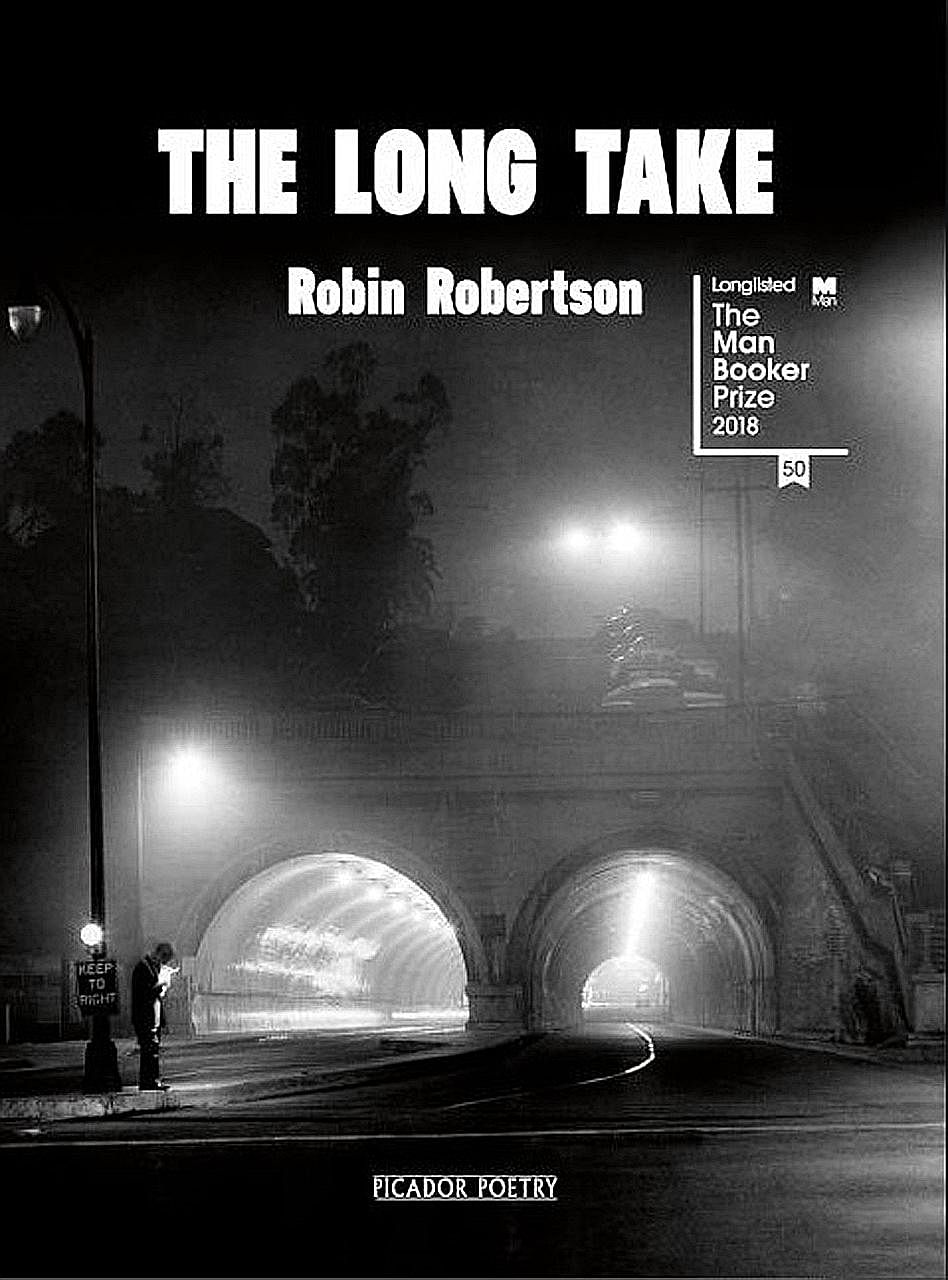Who: Robin Robertson, 63, a veteran Scottish poet and Fellow of the Royal Society of Literature, who has won the prestigious Forward Prize for poetry three times. This is his first novel and also the first novel in verse to be shortlisted for the Booker.
THE LONG TAKE
Picador Poetry/Hardcover/ 237 pages/$30.94/Books Kinokuniya
4/5
This neo-noir odyssey, both dazzling and desolate, wanders the mean streets of post-war America. "We won the war," intones a character, "but we're living like we lost it."
Its Canadian narrator, Walker - by name and nature - has returned from the trenches of World War II with post-traumatic stress disorder.
At the beginning of the book, he is in New York City, but soon leaves it for Los Angeles, where he gets a job as a reporter.
He then travels the coast up to San Francisco and back, reporting on the plight of America's homeless in cities that are inexorably destroying themselves.
His memories before the war revolve around the prelapsarian island of his youth and a girl called Annie MacLeod, whom he loved and cannot return to.
These appear treacherously in the same font as his war flashbacks. One is never sure if one is being dropped into a daydream of lying under the trees with Annie, or a nightmare of "a sudden pink puffball, which was Cargill's head being coughed apart".

Most of the book is written in verse, though Walker's memories appear in snatches of italicised prose.
In the wake of the war, trauma seems to have shattered his sense of self as it has his sentences. Enjambment here is fragmentation, each line another stuttering step in a limping half-life.
The Long Take follows in the footsteps of the great Modernist walking novels, James Joyce's Ulysses (1922) and Virginia Woolf's Mrs Dalloway (1925), but draws not on classic myth but American film noir.
Walker name-drops several of these black-and-white movies - aptly named ones include Out Of The Past (1947), He Walked By Night (1948) and Night And The City (1950) - and even befriends directors Robert Siodmak and Joseph H. Lewis.
Like the cinematography of these dark films, Walker is obsessed with light. Los Angeles is a "field of standing light"; in the morning, each building draws "its own darkness under it like a long skirt; head/ turned to face the first warmth of the sun".
It is that poetry of light in dark that he distils into his lines. With it, the post-war city comes alive: breathing, beautiful, bitterly ruined.
If you like this, read: The Bridge by Hart Crane (1930), re-issued in The Complete Poems Of Hart Crane, edited by Marc Simon (Liveright, 2001, $26.24, Books Kinokuniya). New York City's Brooklyn Bridge inspired this first and only attempt at a long poem by Crane, an American Modernist poet who died at age 32 in 1932.


